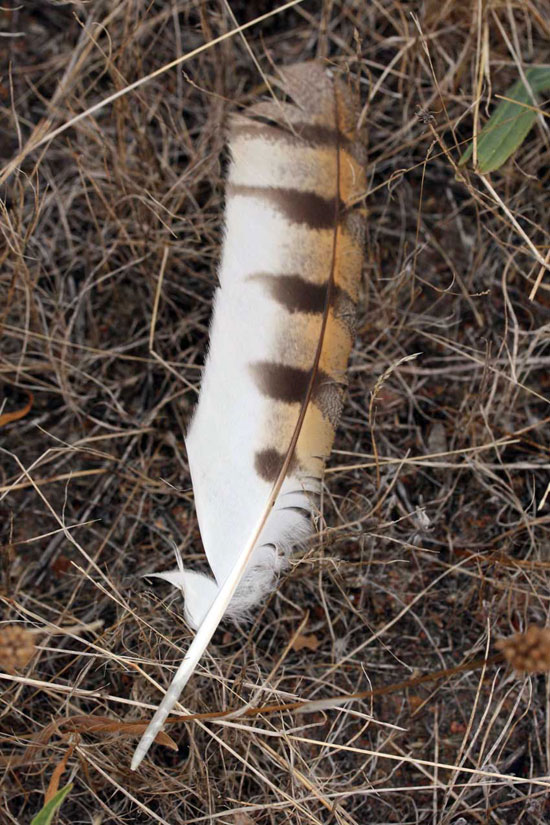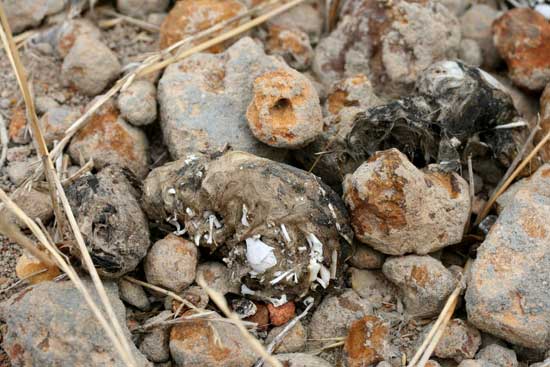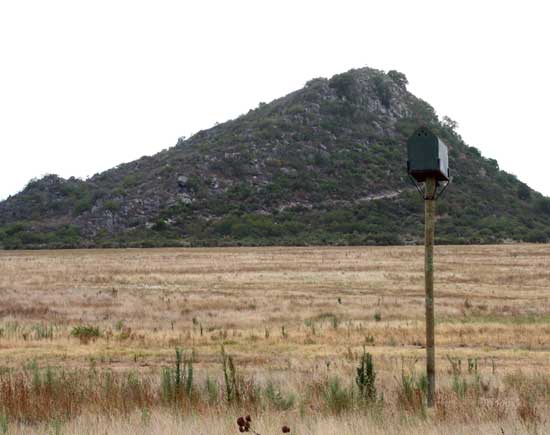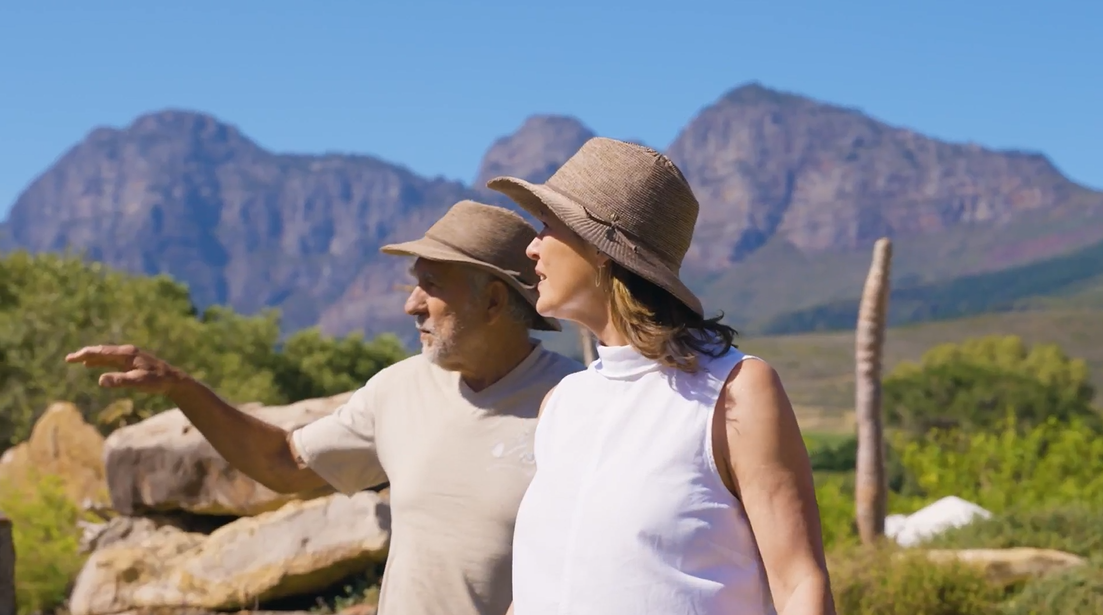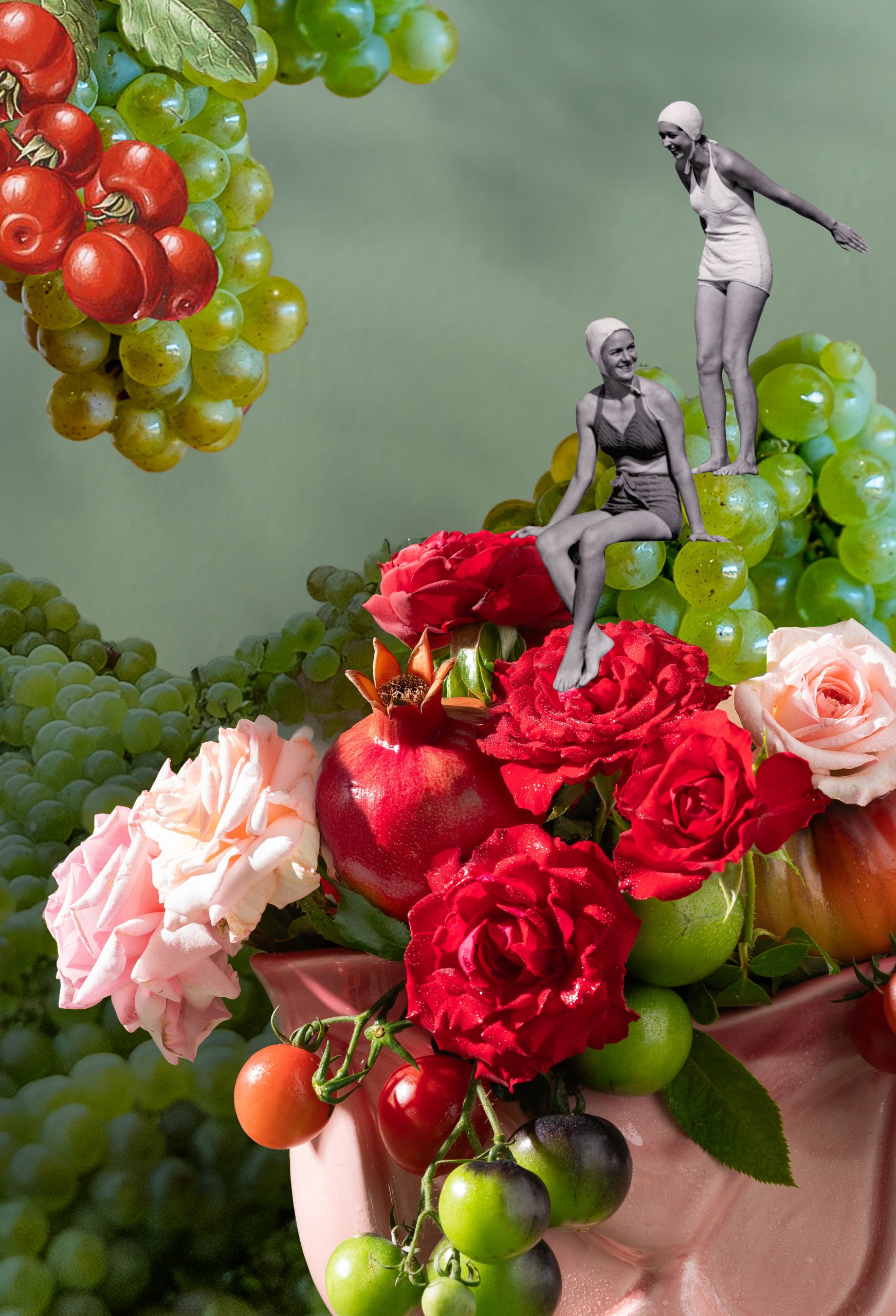Owl Spotting
February 2nd, 2012As is the case at any farm, we have to deal with gerbil and mouse populations, and of course, we’d like as natural a solution as possible. That’s why we turned to owl expert, Lianda Naudé of the Skova Owl Research Project to help us increase our owl population here on the farm.
Lianda spent a day and evening with us, pointing out existing signs of owl activity, identifying the local species and sharing ideas for how to encourage owls to hunt and breed here.
The first signs of owls we found were droppings that look like white paint splatters on the edge of the fish pond, against the gable of the historical wine cellar in the Werf and in the vineyard too. Also, just below a recently-placed Barn Owl box, we found owl feathers, as well as regurgitated pellets of fur and bones. Looking more closely at these pellets, we could see the remains of gerbils, which seemed promising.
Visiting the same owl box after sunset, we were lucky to see the Barn Owl flying out of the nest, and later in the evening we heard the thin screeching call of the Barn Owl, as well as the familiar hooting of the Spotted Eagle Owl (click the links to hear audio clips of these two birds’ calls)
Barn Owls are expert rodent killers and can breed up to four times a year with two to five eggs in a clutch. To encourage the young offspring of the existing owls to stay, we plan to place a few more Barn Owl boxes in strategic places at least 500m apart. We’ll also erect a few raptor perches, which are poles about six meters high from where raptors can get a good view for hunting.
So all you mice and gerbils at the farm had better watch out! The owls are coming to Babylonstoren.
